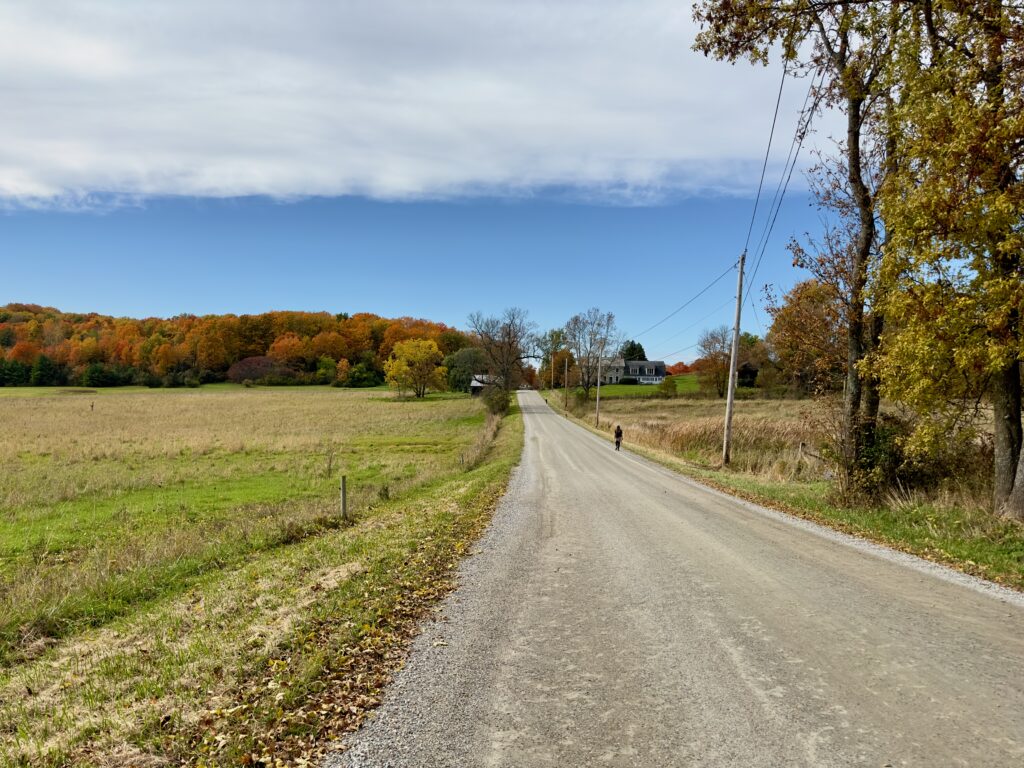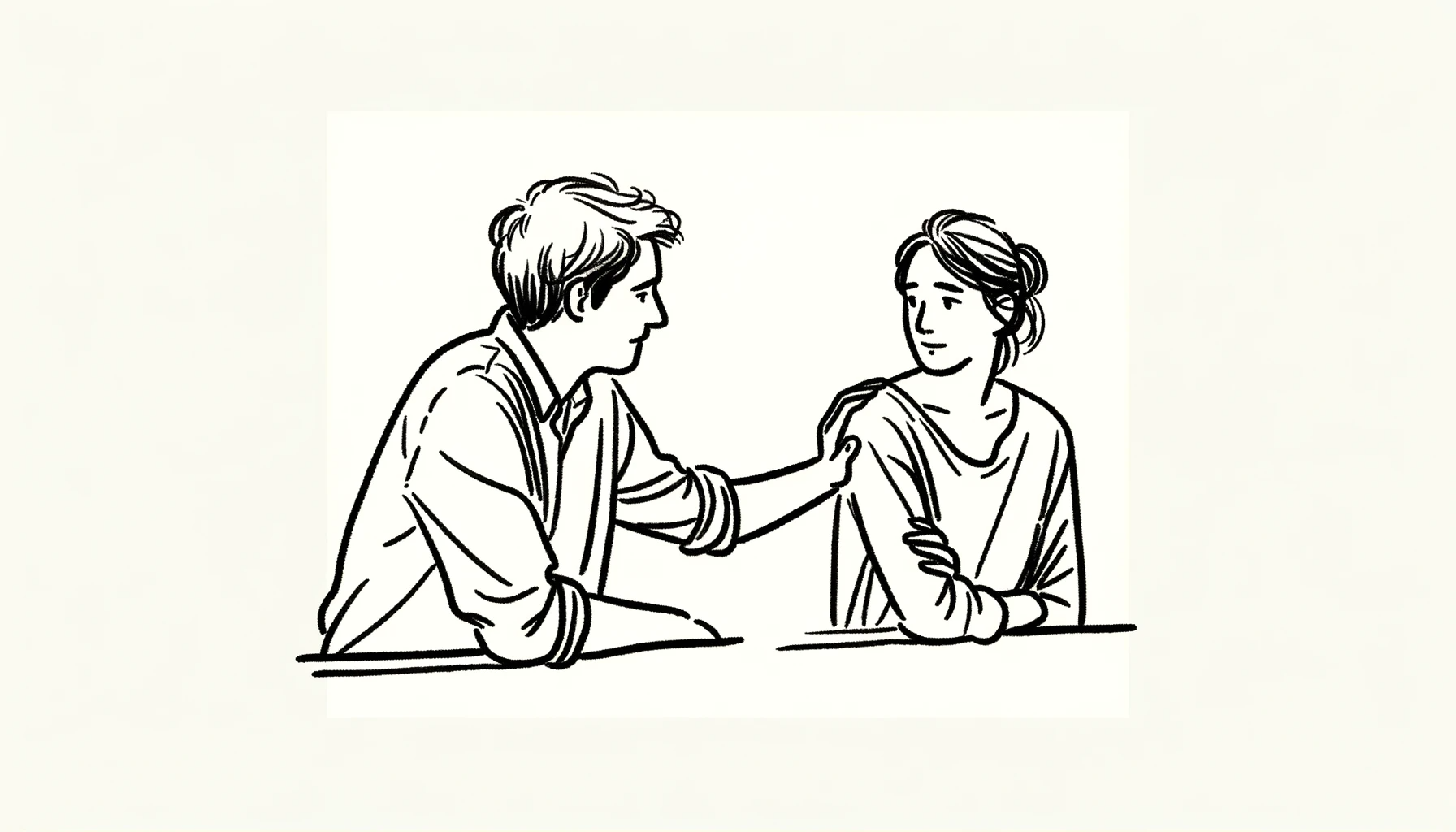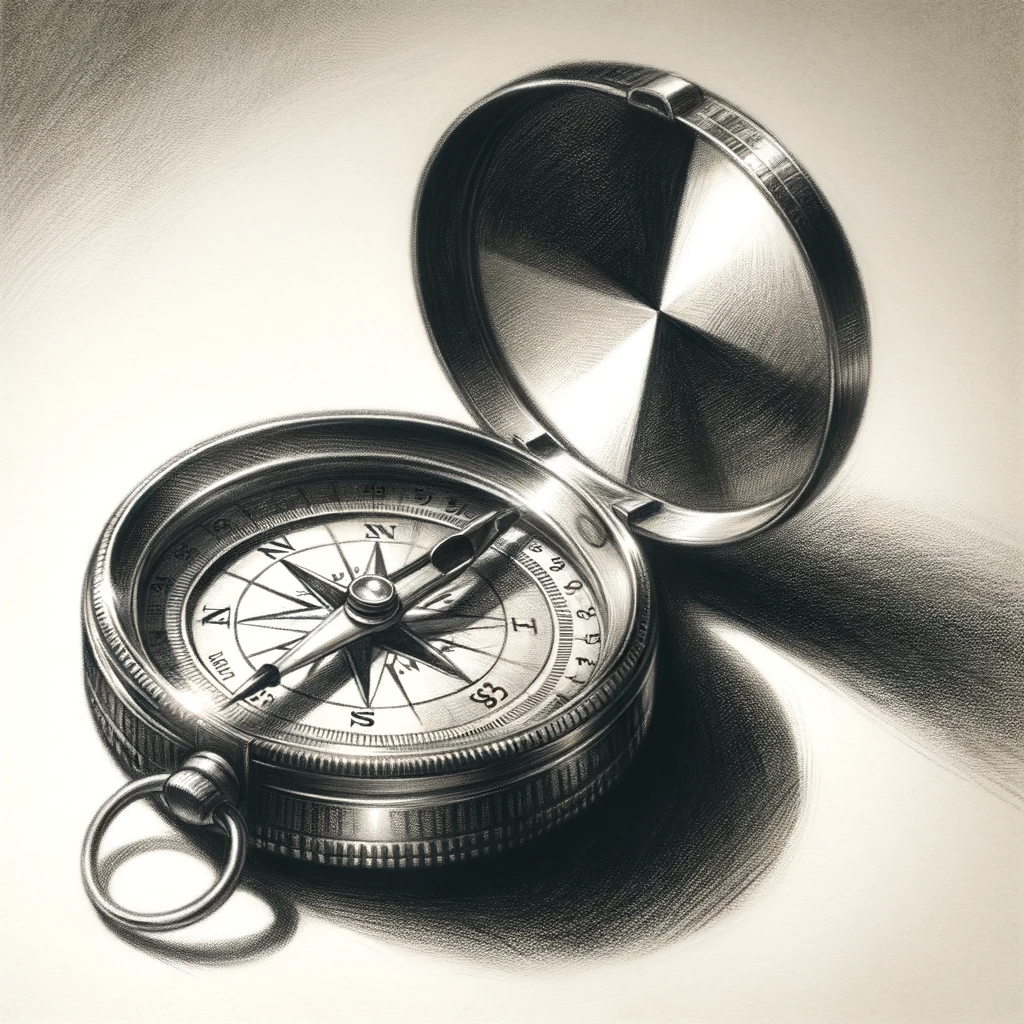From Brooklyn to a farm in rural Vermont
Five years ago, almost to the day, I left my dream job: staff writer at The New Yorker. It was the job I had fantasized of having when I was in high school in the mid-1980s, tried to achieve in my 20s, gave up on in my 30s, and was offered in my 40s. Then, in my 50s, I walked away.
Three years ago, almost to the day, my family and I moved into a 200-year-old farm house built out of stone on a dirt road in rural Vermont.
A few months after that, I quit my (crazily well-paying, pretty exciting) job as CEO of Three Uncanny Four, a podcast production company that was a joint venture with Sony Music.
OK. But what do you do now, you know, for work?
I’m now a farmer. A simple goat farmer. I make my living with goat hair and a loom…
I’m just kidding.
I do not farm. Though we do have 30 acres of farmland that a neighbor puts her cows on. We love seeing them. The cows sometimes break through the fence and helping chase them down makes me feel like a farmer for a few minutes.
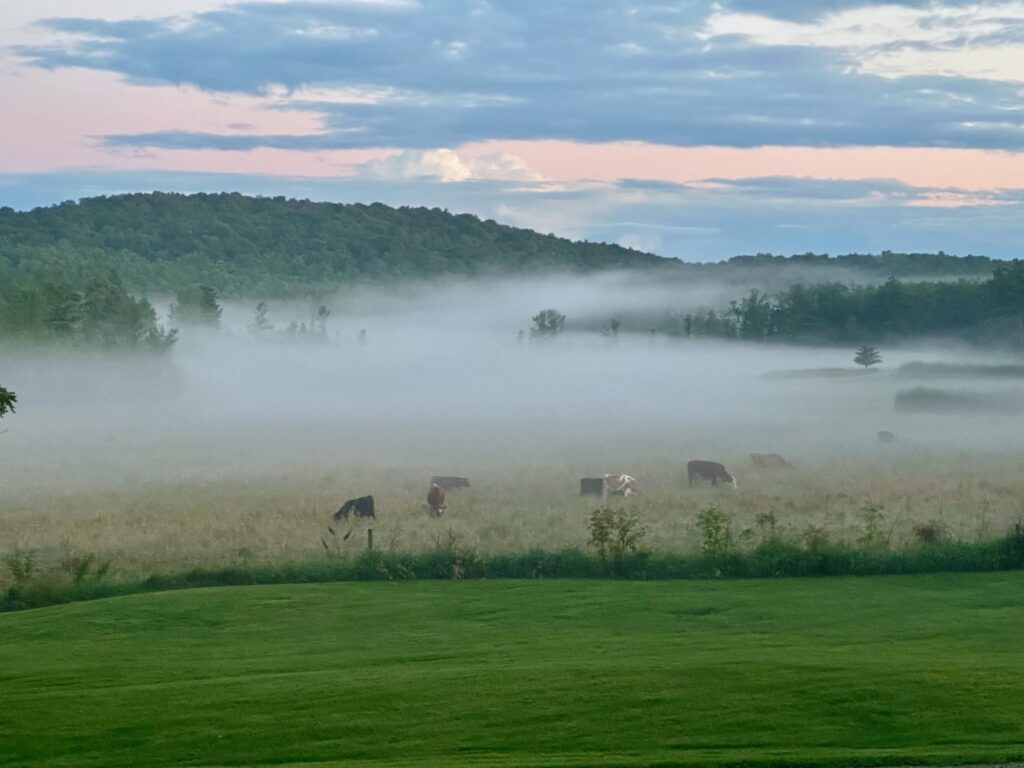
I do… a ton of different things. I have decided (at least for now) that I don’t want a full-time job. I don’t want a boss. I want to take on projects for which I can add real value and that I find fun and interesting. I prefer projects that stretch me and allow me to develop new skills. Some of those projects make some decent money and some don’t. Some serve a higher purpose. Some are just plain fun.
I love this life. I’ve done things I would never think I would do. I have several projects right now that are so amazingly fun: a book on ancient Mesopotamia with my pal, Gojko; a grant-funded project I devised with a group of artisanal cheesemakers in Vermont to promote cheese-centric tourism; a series of articles on the nature of storytelling and business strategy for Harvard Business Review; a movie project with Adam McKay; a bunch of documentary ideas that I’m working on with my brother, Eben.
I love this life; but I find it hard to explain. For most of my career, I had a pretty impressive sounding job (at least it sounded impressive to me and to my parents): Middle East Correspondent; International Business Correspondent; Host and Founder; Staff Writer; CEO. I worked for impressive places: NPR and The New York Times and The New Yorker and Sony Music. Now, when someone asks what I do, I feel a bit naked, maybe a touch embarrassed, without the quick, easy prestige of a big job at a big place.
What do you do now? Um, well, I do a bunch of things. With a bunch of people. Do you like cheese?
The Base: Coaching and Consulting about Business Storytelling
The core of my working life, right now, is coaching and consulting businesspeople about how they can more effectively tell the story of their company and their own personal/career/vision story.
I love it. I’m amazed at how much I love it. I also think I’m pretty good at it.
(I’m guessing at least some people who know me do not find this surprising: you get to tell people what to do? No wonder you love it so much. I have learned to temper my instinct to lecture and am much better at asking questions rather than just coming in hot with my take.)

The work is, in one sense, quite simple. I talk to people about who they are, what they do and who they are trying to reach. I work with them to figure out how to zero in on the core of their story. What makes them … them. What makes their company special. Then we figure out who most needs to know that story and, more than just know it, have positive feelings about it, remember it, be able to share that story with others.
The work can be profound.
Pretty much every businessperson has some storytelling challenge, some crucial audience that doesn’t quite get what makes them or their business unique.
Sometimes the problem is the story. Like, there isn’t one. The company just isn’t distinct enough. It doesn’t offer enough value.
Other times, the problem is the telling. There is a great story about a valuable and distinct product or service but the way the story is told is ineffective, confusing, boring.
And sometimes (often, actually) a big part of the challenge is the storyteller. The leader I’m working with isn’t confident enough to unabashedly make their claims or isn’t willing to engage those who doubt their vision.
Sometimes it only takes a few chats and we get the problem solved. Other times, we need to design a larger engagement, involve senior staff, do fundamental rewrites of a deck, a website, sales scripts.
I love this work. Each engagement is different. I’ve learned about the inner workings of the top leadership of some massive corporations. I’ve also struggled along with solopreneurs as they try to figure out what makes them and their company different from all the others. I’ve worked with a dental care startup, a fast-growing fax-software company (no joke: faxes are, still, the backbone of our medical system), private equity and venture capital firms, a company that uses seaweed to capture carbon, a think-tank that seeks to end gun violence.
And I especially love that I have no idea who I’ll be working with next. (Maybe you or a business leader you know? If you’re interested in exploring whether or not we’d be a fit, schedule a call and we can talk and see if it makes sense to work together.)
But you are a journalist. Journalists don’t consult with businesses. Isn’t that a conflict of interest?
I am not a journalist right now. I haven’t really been one since 2018. (Oh, and I left Planet Money in 2013, though a lot of people assume I’m still there).
I don’t work with companies I find morally offensive. (None have asked). I prefer to work with companies that have some kind of mission other than profit. That’s for personal, moral reasons. And, also, storytelling reasons. I like my clients. I like what they do. And if I find I don’t like a client or come to no longer believe in what they do, I just politely walk away. (It’s happened once).
I don’t consider the work I do to be public relations. I don’t, typically, work with PR or Marketing. I work with CEOs. The work I do is strategic; it is about identifying the core essence of a company and the ways it aligns others around a central vision. That may manifest itself in better PR. But that’s someone else’s problem.
I am working on some books and some articles that could be seen as journalistic. But–I hope, obviously–I would never write about any topic that might represent a conflict. I always disclose all my clients to editors and, if appropriate, readers.
Why did you leave journalism?
I friggin’ loved being a journalist.
I loved everything about it.
My son, who is 12, talks about becoming a journalist and I am so proud and excited. (I didn’t push him to do what I do. I swear! He came up with it on his own. I’m also fine if he ends up doing something else entirely.)
I loved being able to wonder about something and then go learn about it from the experts or from the people who experience it. I loved getting better and better (I wasn’t very good at first) at turning a bunch of facts into a compelling story.
I loved feeling that I was helping to shape how others understand the world.
But there was also a lot that frustrated me.
I found that many editorial decisions were made by people who don’t know much about the topic. I found that journalistic institutions tended to be quite hierarchical with a top-down management that is inappropriate to the job.
As with so much in our society, Trump broke something in me. Or, perhaps, he revealed something. Or, probably, both.

I found many of the ways journalism works no longer made much sense, at least not to me. It felt too timid, too easily hijacked, too insular, too defensive.
I’m not ready to lay out all of my thoughts. I’m not sure they are thoughts, yet. They are more like flashes of anger and instinctive responses. I do hope to write more at some point.
But the simplest way I’d put it is this: way too many news organizations put out things that are … BS. They publish the claims of known liars without calling them lies. They publish too many articles that flatter a source rather than serve the needs of readers and the requirements of the truth.
The journalism I most love is fearless. It calls BS on BS. It is aggressively pro-truth and pro-democracy. And is not swayed by power or influence. (The two people who most closely represent my views on these issues are Margaret Sullivan and Jay Rosen). And it seeks to tell stories powerfully, using the best narrative craft, to ensure readers, listeners and viewers don’t need to have some prior knowledge of jargon and insidery language.
I believe in journalism. It is absolutely necessary. And, in my experience, the vast majority of journalists are hard-working, earnest people willing to sacrifice a lot for a great public purpose. I love journalists. And much of the work they do is not just good it’s absolutely vital.
But I hate how many journalistic institutions are structured. Ask any journalist about how decisions are made within their company and they will almost certainly tell you that decisions are made without transparency; without deep knowledge; without a clear, bold eye on truth.
I was a pain in the butt for most of my bosses (just ask ’em). I was always pointing out the failings I saw in organizational structure and how those failings led to subpar work. I often presented plans for a new way of working. I was sometimes persuasive and had a positive influence (Planet Money is a direct result of these efforts). Other times, I was annoying and negative and didn’t help anyone.
I loved spending a year in Iraq, spending months in post-earthquake Haiti or time in post-Tsunami Banda Aceh, Indonesia. But spending time in the offices in New York (or, briefly, LA) of big journalism was often too maddening for me.
I do feel a responsibility to point out: most of my bosses were really good people and very good journalists. I never once saw anything I would call unethical or corrupt. At least not directly. (I did meet Stephen Glass once and worked in places that had scandals, but I was never a direct witness to the suspect work.) The problems I saw were systemic and, possibly, inherent to the nature of the field.
I need a break. I need some time away.
I learned that I love other things, too, like business strategy
In 2018, I got an offer to produce a podcast. It came with enough money that I decided to open a small, boutique podcast studio to produce that one show and a few others. It was going to be a tiny side-gig while I continued my main job of writing for The New Yorker.
A few months later, that small boutique became a big ol’ company, Three Uncanny Four, a joint-venture with Sony Music. Before I knew it, I had a staff of 25, was in talks to acquire other companies. our five-year goals were for revenue so large that I could barely take in the numbers.
Three Uncanny Four failed. That failure is–and I do not say this falsely–entirely my fault. I failed as a leader. I failed as a strategist. I failed as an operator. I hope to write about all that one day, too. I also need time to refelect.
Despite (because of?) all that failure, I found myself absolutely fascinated by business strategy. As a business reporter, I had always found strategy to be an intriguing topic. But I became downright obsessed. I now knew, deep in my guts and my own painful experience, how the thoughts in the head of a leader can (or cannot) lead to business success.
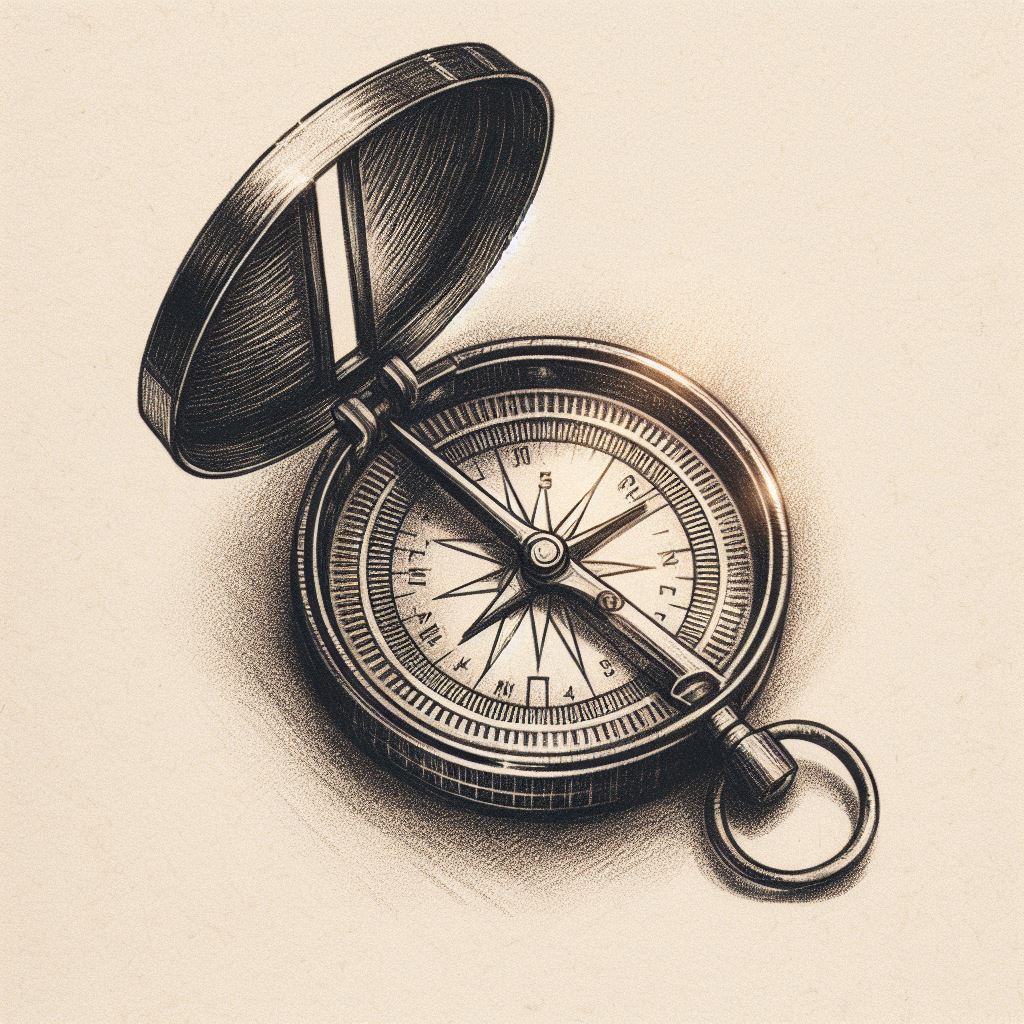
In my failure, I came to see the small number of things that I believe I am uniquely good at. I have an unusual mix of skills and experience. There are not many people who have worked with some of the very best storytellers in America (This American Life, Planet Money, Adam McKay, The New Yorker, The New York Times Magazine) and have become, if I may, towards the top of the heap of narrative nonfiction writers. There also aren’t many people who have spanned so many storytelling genres: print, audio, and film. And, lastly, of that group of folks, I think I’m the only one who really cares about crafting and explaining business strategy.
I can name a lot of people who are way better than me at every one of the things I think I’m pretty good at. But I don’t know anyone else who combines the precise mix that I do. (BTW, I think this is true of you, too, and also everyone else. We all have some area we are the unique, best in the world at.)
So, that’s one of the main things I do now. I work with businesspeople to help nail their strategy and then to tell the story of their company, their vision, their products and service, and themselves, to the people who need to know it. The core story stays the same. But the way its told needs to vary for investors or customers, senior staff or new recruits.
To be overly honest, there are times that I feel embarassed to tell old journalist colleagues about what I do now. Business coach, consultant, advisor. I think it sounds lame to at least some journalists.
But I’ve decided to come clean. I love what I do. I’m good at it. I’m proud of it.
Oh, and I’m doing some other things, too
– Kanesh: You should know all about it
The Kanesh Archive is one of the most fascinating, important set of documents in human history. And you–like just about everyone else–have never heard of it.
Between 1990 and 1960 B.C.E., 4,000 years ago, a group of traders from what is now northern Iraq moved to the city of Kanesh in what is now central Türkiye. They traded tin and silver and a bit of gold and wildly expensive textiles made in Babylon. That’s not the interesting part. There were a lot of traders living in a lot of cities in the ancient world.
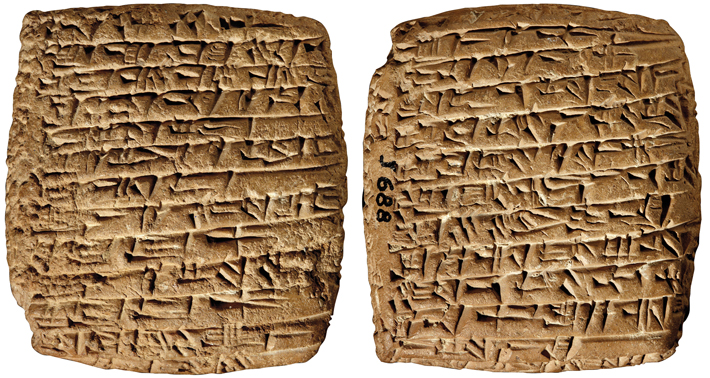
These traders were constantly sending letters home and receiving letters from their parents, siblings, spouses, business partners. That’s also not the interesting part. This was a period of relatively widespread literacy and traders were almost certainly writing letters all the time all over the place.
The interesting part is that we have the letters. All of ’em. Like 25,000 of them. (And most archaeologist who work on the site believe there are tens of thousands more waiting to be unearthed.) We have the letters for accidental reasons. Kanesh was invaded around 1960 B.C.E. and burned to the ground. We don’t know who invaded or why, but clearly the locals had advanced warning because there are no human remains. The fire burned down these homes of wood and clay in exactly the right way. When people used cuneiform tablets they kept them leathersoft, as potters say. A bit wet, so they don’t crack when you read them. Leathersoft tablets don’t last very long. They melt back into the earth over time. But the fires that destroyed Kanesh acted like a kiln, burning at just the right temperature (somewhere between 800° and 900° C) to turn those tablets into stone without destroying them.
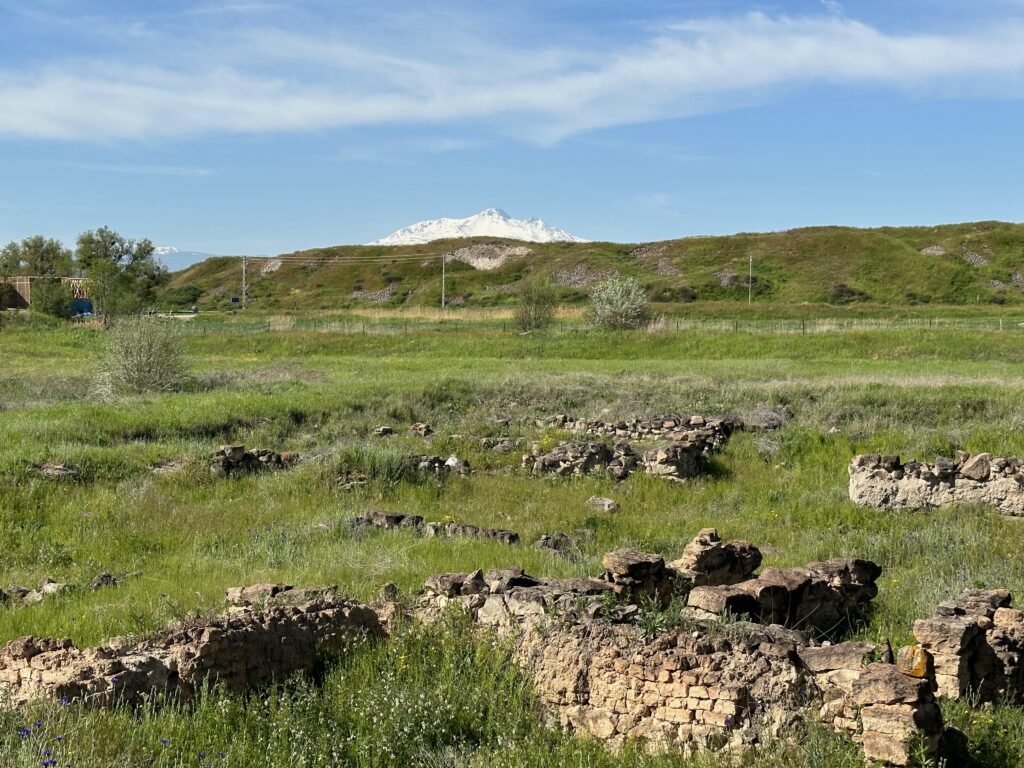
Eventually–in the last decade or two–a significant number of these tablets were translated and, now, I am writing a book about the incredibly detailed picture of an ancient world. I am so excited.
You’ll get to meet Zizizi, the woman who broke free from her overbearing father and the strict rules of Assyrian society to become a wildly wealthy self-made entrepreneur.
Enam Assur is the dutiful son of an oligarch who spent 3 years in lawsuits over his father’s estate until, destitute, he entered the business of illegally smuggling meteoric iron and was killed on the side of a road in a deal gone bad.
And on and on. So many rich, fascinating characters.
Vermont Cheese: Come visit!
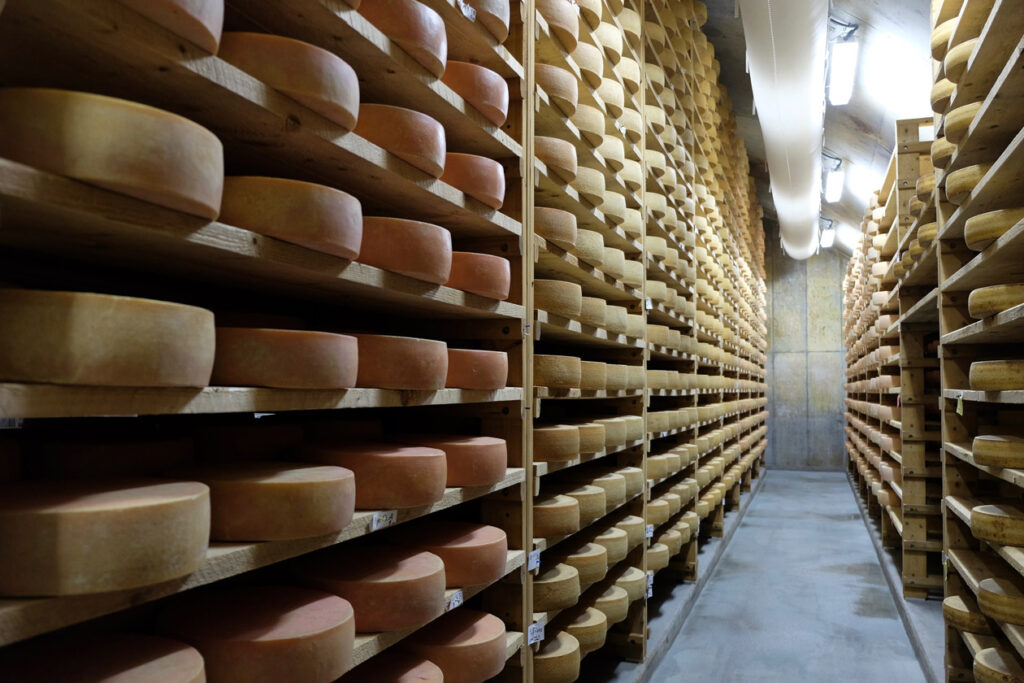
When I moved to Vermont, I wanted to better know my new state and the world of agriculture and value-added food production. (That’s because, well, I really like business and I really like food!).
I grew up in a cheese-loving family. We ate great cheese every day. I went to Murray’s all the time as a kid. I love cheese. And I was excited to meet some of Vermont’s amazing cheesemakers. I realized there is an incredible story here and far too few people know it. And of the people who know it, too few come to experience it in person.
So, along with my pal Bethany Breitland (read her amazing book of poetry), I applied for a grant from the state of Vermont to tell the story of Vermont cheese and to encourage tourism around its cheesemaking.
We’re just getting started. It’s really fun (and delicious).
Storytelling, Strategy, and Business
I am working with some amazing thought leaders on a series of pieces for Harvard Business Review about storytelling, strategy, and business success.
I will have much more to share on that, soon.
Conspiracy Busting
I’m producing and co-hosting a podcast with a couple former CIA officers about conspiracy theories. We learn about some conspiracy theories and try to figure out all the things that would have to align to make them true. (We most often can’t). It’s fun and funny and coming out in January, 2024.
Get in touch!
One other thing I’m doing: talking to a lot of people. While I love this country life, it is a bit isolated here on our dirt road in a tiny town. (Well, a big town by land mass–twice the size of Manhattan–but with around 3,500 residents). So, I’m talking to people. People who have storytelling problems in their business. People who have ideas they want to share. I’ve far lowered the bar for talking on the phone or by zoom.
So, reach out if you want to talk. I’d love to hear about your storytelling challenges, in particular. But I’m game for whatever. Schedule a meeting.

